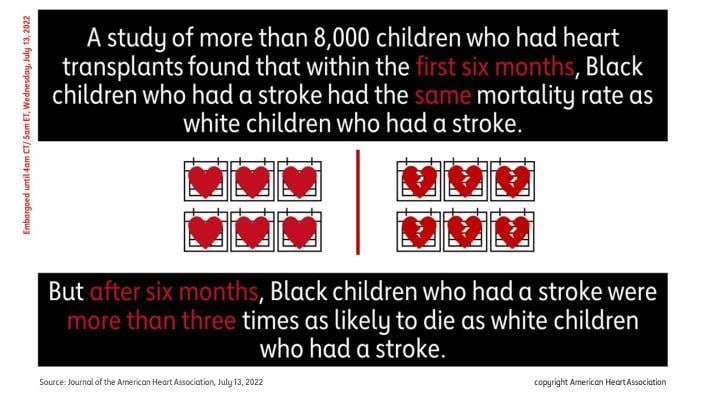
The authors analyzed data about 8,224 children who received cardiac transplants from January 1994 through September 2019. The data came from the Scientific Registry of Transplant Recipients (SRTR), a national database of all organ transplants in the United States. The researchers adjusted their analyses for factors including age, sex, cognitive difficulties, insurance status, transplant year and the reason for heart transplant.
July 13, 2022 — Black children who underwent heart transplant surgery for the first time were more than three times as likely to die after six months than white children, according to new research published in the Journal of the American Heart Association.
The study’s authors found that, within six months after receiving a heart transplant, Black children who had a stroke had a similar death rate compared with white children who had a stroke. However, after six months, Black children who had a stroke were more than three times as likely to die as white children.
The authors found that Black children had a 32% lower chance of experiencing a stroke after a heart transplant compared to white children. However, they noted that in a recent study using the SRTR database, Black children had a 25% higher mortality rate while on the transplant waitlist compared to white children, suggesting that Black children who are at a higher risk of experiencing a stroke may be less likely to survive to receive a heart transplant.
Citation: Laura Lehman, et. al. Racial Disparities in Incidence and Prognosis of Perioperative Stroke among Pediatric Cardiac Transplant Recipients. Journal of the American Heart Association. July 13, 2022. doi/10.1161/JAHA.121.025149.
For more information: www.heart.org


 November 14, 2025
November 14, 2025 









